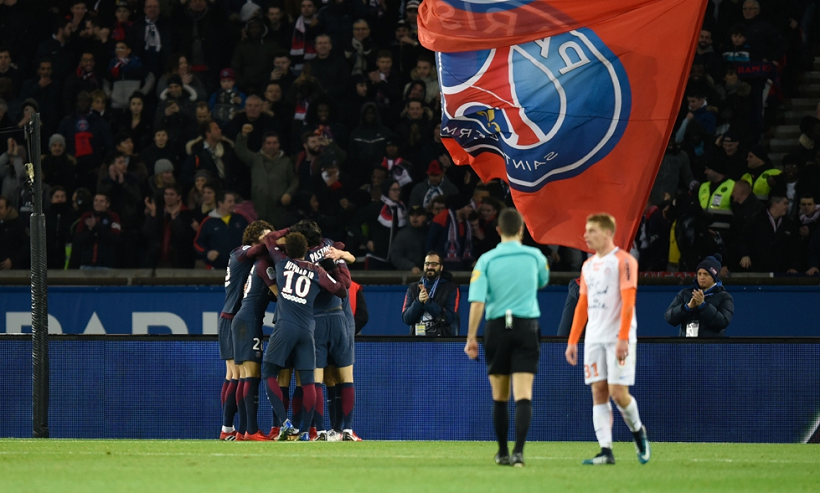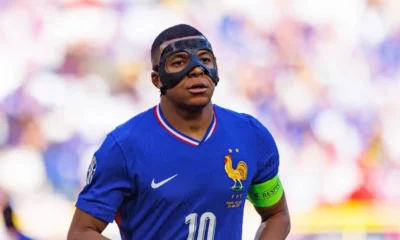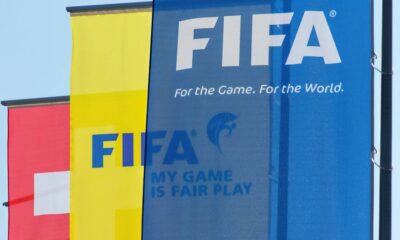Champions League
Did PSG violate financial fair play? Apparently there are no rules for Qatari investors. What does UEFA say?
Football as a marketing tool is how Qatari investors see the sport. Unfortunately, this is creating significant negative ripples in the football market. Why? Because in this case, other clubs have to respond to the trend set by extremely wealthy owners. But how did UEFA comment on the PSG case and what can we expect in the future?

Football as a marketing tool is how Qatari investors see the sport. Unfortunately, this is creating significant negative ripples in the football market. Why? Because in this case, other clubs have to respond to the trend set by extremely wealthy owners. But how did UEFA comment on the PSG case and what can we expect in the future?
“When one sees how irresponsibly millions of dollars are juggled in the football business, how naively young millionaires entrust themselves to third parties, how desperately worthless footballers blatantly transgress against the law and morality, then the problems in football seem perhaps even bigger than one has been willing to admit so far,” says the book Football Leaks.
Whether we want to admit it or not, football is perhaps getting messier and messier. It must be said that, unfortunately, politics and business also have a bigger and bigger say in the beautiful sport that football undoubtedly is.
The involvement of Arab sheikhs and billionaires in world football is also a disgraceful proof of this. And the best example is clearly the biggest French club – Paris Saint-Germain.
PSG & Qatari investors
Tamim ibn Hamad Al Sani has been the ruler of the Emirate of Qatar since 2013 and is also a very close man to PSG’s current president, Nasser Al-Khelaifi. And it was the Qatari Emir who has been the one to identify international football as a strategic asset in the past. The goal is very clear.
To make his small country more important. It is, in fact, a similar effort to that of the Chinese Football Association and Chinese investors in recent years. But the owners of PSG are a different story. It is not just about club level, although winning the Champions League is one of the main objectives.
There is a reason that Qatar will host the 2022 World Cup. As the Football Leaks material also states, and what is also clear to all people above the sun, Qatar’s wealth backed by fossil fuel reserves is not unlimited. This is one of the main reasons why the sheikhs are so involved in such a way, and not just in the football environment.
For example, Qatar’s representatives recently signed a contract with F1 as well, which stipulates that from 2023, the Losail circuit will host Formula 1 races for at least ten years. It should be noted that Qatar also has a long-standing agreement with Moto GP management.
According to Football Leaks, the country is preparing for a future without oil and gas revenues. And sport is set to play an important role in this. In the long term, the country wants to make money by investing in sports clubs, players, events and TV rights. It probably goes without saying how huge a business Formula 1 is.
This shouldn’t get us football fans off our chairs too much yet. It’s just that the wealth of one club will have a significant impact on the other clubs. How? Quite simply. The biggest clubs then have no choice but to adapt to the current situation in the transfer market.
As a result, the transfer fees are constantly increasing, creating a bigger and bigger gap between the “best” and the rest of the world. Karl Heinz Rummenigge, for example, has stated that financial movements such as we have seen in 2017 and 2018 in particular will severely damage the financial side of football in the future.
And German Chancellor Angela Merkel, for her part, has called on the football associations to ensure greater sporting balance. But there is a fundamental question here – who has the strength and power in the football environment to fully control financial flows and various business practices?
FIFA has been toothless for years now, and we probably better not look for any hope in the UEFA organisation either…
Today, for example, third-party ownership is such a widespread problem that even FIFA itself, which as the main governing body is tasked with regulating the rules of operation in football, has left the registration of agents to the individual national football associations. This is nothing other than a capitulation to an industry in which, in principle, anyone can get involved.
Well, let’s not hold out any hope for UEFA either. The latter, headed by Michel Platini, who incidentally has recently been accused of fraud, mismanagement, embezzlement of FIFA funds and falsification of documents, introduced a set of rules in 2011 under which professional clubs are not allowed to spend unlimited amounts of money on players.
While the European association has punished clubs that violate this financial fair play, there was still a feeling in the footballing public that the top clubs were not really affected.
So let’s give an example of how easy and clever it is to get out of this rule. After the Parisian club spent 222 million euros on Neymar, they announced to the public that they were planning to bring in another rising star of Monaco – Kylian Mbappé.
In the final week of the 2017 summer transfer window, UEFA representatives even visited PSG’s ground to personally warn them about a potential FFP violation. Even so, the Parisians subsequently announced Mbappé’s transfer.
UEFA couldn’t even really object to this, again for a simple reason. PSG and Mbappé’s then club signed a one-year away contract together on August thirty-first, 2017. Thus, the amount paid for the yet-to-be transferred player was not part of the 2017 accounts.
Fraud? No, not really, more like a clever ruse. But it does mean something else entirely, namely how useful and successful the financial fair play system must be if it can be so easily circumvented. Especially when Aleksander Čeferin, the president of UEFA, did not bother to comment on the PSG case.
Exclusion from the Champions League? That’s simply not an option for the best teams
The matter subsequently did not leave Liverpool coach Jürgen Klopp cold. “I thought that financial fair play was a rule that had to be respected and that was meant to prevent exactly such situations. But maybe it is just a suggestion for now,” Klopp said in an interview at the time.
According to Football Leaks, the European association is unlikely to exclude one of the most brilliant players and spectator magnets from its competition, which attracts a lot of money for TV rights. The fact that several million people see sponsors’ logos during their Champions League matches also plays a role.
The financial losses, especially in marketing and broadcasting, would probably be too great to bear. As we are also all well aware today, Manchester City also escaped the punishment of exclusion from the Champions League for breaching financial fair play last year.
In the Football Leaks material we then still find communications between two unnamed UEFA officials.
“The system of player transfers is completely out of control. It does not contribute to sporting balance, breeds glaring inequality of wealth and undermines even the smallest stability in contracts between players and clubs. Today’s football market resembles the predatory and unscrupulous capitalism of the 19th century in the United States,” Football Leaks’ material reads.
According to UEFA’s latest statements, its representatives are now working to change this and are discussing a possible model for what this could look like in the future and how the football market could be much better controlled. The most serious alternative at the moment is the introduction of salary caps, which UEFA would move to from the 2022/23 season.
However, a similar model is already used by the Spanish La Liga, which for example reduced the salary caps by around €610 million last year.
Source: Football Leaks












